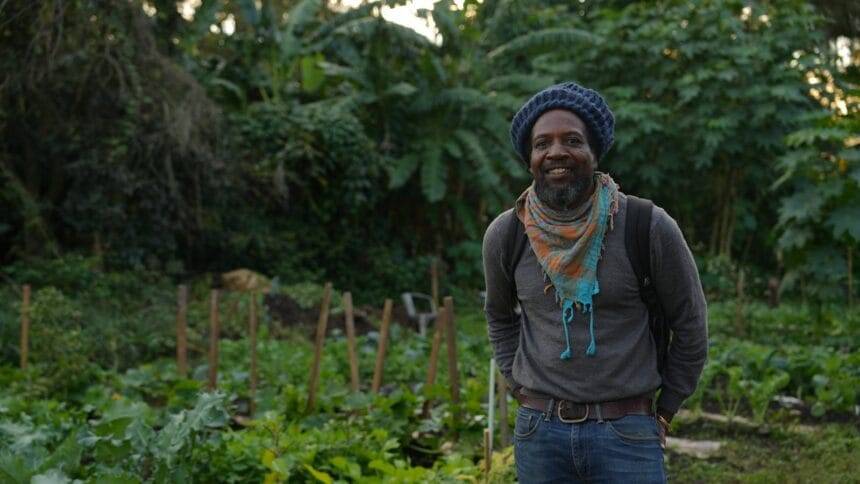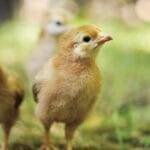Main Points In Hindi (मुख्य बातें – हिंदी में)
-
सामुदायिक फार्म का उद्देश्य: पोर्टर क्वार्टर सामुदायिक फार्म एक आत्मनिर्भरता का प्रतीक है, जो निवासियों के लिए ताजगी उपज उगाता है और खाद्य असुरक्षा से निपटने का प्रयास करता है।
-
फार्म का महत्व: फार्म, जो 2012 में शुरू हुआ, सिर्फ उपज बेचने के लिए नहीं, बल्कि स्थानीय निवासियों को खेती के तरीकों और भोजन को संरक्षित करने की विधियों सिखाने का कार्य करता है।
-
समुदाय का एकता और विश्वास की कमी: हालांकि सामुदायिक फार्म का प्रयास एकजुटता को बढ़ावा देता है, लेकिन स्थानीय समुदाय के बीच विश्वविद्यालय के प्रति अविश्वास और संशय भी मौजूद है, जिससे उनके संबंधों में बाधाएं आती हैं।
-
शहरी खेती के लाभ: सामुदायिक और शहरी कृषि योजनाओं द्वारा लोगों को अपने भोजन पर नियंत्रण रखने और सामुदायिक सशक्तिकरण प्राप्त करने का अवसर मिलता है, विशेष रूप से सीमित संसाधनों वाले समुदायों में।
- समुदाय की आवश्यकताएं: स्थानीय कार्यकर्ताओं का मानना है कि आगे बढ़ने के लिए उन्हें वित्तीय सहायता की आवश्यकता है ताकि वे अपने प्रयासों को विस्तारित कर सकें और अन्य पड़ोसी समुदायों में यह मॉडल लागू कर सकें।
Main Points In English(मुख्य बातें – अंग्रेज़ी में)
Here are 4 main points summarizing the content:
-
Community Farming Initiative: The Porter Quarter Community Farm, located near downtown Gainesville, has transformed a vacant lot into a source of fresh produce for residents, aimed at addressing food insecurity and fostering self-sufficiency within the local community.
-
Historical Context and Community Unity: Established by Dr. Watson Porter in 1884, the Porter Quarter was historically a predominantly African American area that has faced shrinkage due to development projects. The community remains united but cautious of outsiders, emphasizing self-reliance and collective improvement.
-
Educational and Empowerment Focus: The farm not only provides fresh produce but also serves as an educational platform, teaching residents about sustainable food practices, food preservation techniques, and the significance of self-grown food to combat the shortcomings of current food systems.
- Challenges and Community Trust Issues: Despite positive efforts, there are ongoing trust issues between the farm and the community, stemming from the local distrust of external organizations, particularly the university. Community leaders like Fay Williams emphasize the need for stronger relationships and communication to overcome skepticism and engage more locals in farming initiatives.


Complete News In Hindi(पूरी खबर – हिंदी में)
डाउनटाउन गेन्सविले के पास सड़कों के एक अनजान चौराहे पर, पोर्टर क्वार्टर सामुदायिक केंद्र के सामने जमीन का एक खाली भूखंड पड़ा हुआ था। आज, यह भूखंड एक सामुदायिक फार्म के रूप में कार्य करता है जो निवासियों के लिए ताज़ा फसलें उगाता है।
55 वर्षीय पोर्टर क्वार्टर कम्युनिटी फार्म के प्रमुख किसान ओटिस गैरीसन, फार्म को पड़ोस के भविष्य और आत्मनिर्भरता में निवेश के रूप में देखते हैं। वह नाशपाती, अनार, अरंडी का तेल और एवोकैडो सहित विभिन्न प्रकार की उपज उगाने की इच्छा रखते हैं।
गैरीसन ने कहा, “जैसे-जैसे समय बीतता जाएगा, आपको दोपहर का खाना भी बाहर नहीं लाना पड़ेगा।”
गैरीसन ने कहा, आत्मनिर्भरता के इसी विचार के आधार पर पोर्टर क्वार्टर की शुरुआत की गई थी। 1884 में, कनाडाई चिकित्सक डॉ. वाटसन पोर्टर ने समुदाय की स्थापना की और केवल अफ्रीकी अमेरिकियों को अचल संपत्ति बेची, एक के अनुसार 2018 यूएफ आर्किटेक्चर प्रोजेक्ट. जबकि ऐतिहासिक रूप से काला समुदाय एक विस्तृत क्षेत्र में फैला हुआ था, विकास परियोजनाओं के कारण पिछले कुछ वर्षों में इसका आकार छोटा हो गया है।
जो बचा है वह एक एकजुट समुदाय है जो बाहरी लोगों से सावधान रहता है।
सामुदायिक फार्म, जो 2012 से काम कर रहा है, खाद्य असुरक्षा से निपटने और कुलियों के लिए आय उत्पन्न करने के प्रयास के रूप में कार्य करता है। यह समुदाय के लिए एक साथ आने और बाहरी संगठनों की सहायता के बिना, अपने जीवन को बेहतर बनाने की दिशा में काम करने के लिए एक स्थान के रूप में भी काम करता है। स्थानीय कार्यकर्ता, किसान और समुदाय के सदस्य खेत पर काम की सराहना करते हैं, लेकिन उन्हें इस बात का दुख है कि उनके समुदाय में खाद्य असुरक्षा को हराने का रास्ता कितना लंबा है।
हाई स्प्रिंग्स में पले-बढ़े गैरीसन ने कहा कि उन्होंने कभी खुद को किसान के रूप में नहीं सोचा। 2016 में जब वह अटलांटा में एक पैन-अफ्रीकी उत्पादक संगठन में शामिल हुए, तब तक उनमें कृषि की शक्ति के प्रति जुनून विकसित नहीं हुआ।
उन्होंने कहा, समुदाय को अपना भोजन स्वयं उगाने की शिक्षा देने से स्थानीय खाद्य-असुरक्षित निवासियों को हमारी वर्तमान खाद्य प्रणालियों की अव्यवहारिकता से उबरने में मदद मिलेगी, क्योंकि कोरोनोवायरस महामारी जैसी स्थितियां उन्हें रोक सकती हैं। उन्होंने कहा, न केवल खेत की फसलें बिक्री के लिए हैं, बल्कि वे लोगों को यह सिखाने के लिए भी हैं कि निर्जलीकरण, अचार बनाना, जारिंग और डिब्बाबंदी के माध्यम से भोजन को कैसे संरक्षित किया जाए।
“हम एक उदाहरण बनना चाहते हैं [that] गैरीसन ने कहा, यह समुदाय और हमारे अधिक समुदाय हमारे अपने व्यवसाय की देखभाल करने में सक्षम हैं।
खेत का प्रभाव
30 वर्षीय सामाजिक कार्यकर्ता एरिनेशा हैमिल्टन, गैर-लाभकारी संगठन स्लिक गार्डन की मालिक हैं, जो पोर्टर्स सामुदायिक फार्म के साथ काम करती है। वह फार्म के साथ साझेदारी करना चाहती थी क्योंकि उसका मानना है कि यह उस चीज़ का खाका है जो वह अन्य ऐतिहासिक रूप से काले समुदायों में देखने की उम्मीद करती है।
हैमिल्टन ने कहा, “मेरी पहल वास्तव में कृषि को टिकाऊ बनाने के लिए एक पाठ्यक्रम शुरू करना है।”
आप जो पढ़ रहे हैं उसका आनंद लें? द एलीगेटर से अपने इनबॉक्स में वितरित सामग्री प्राप्त करें
हालाँकि, डुवल और शुगर हिल जैसे अन्य पड़ोस में इस पहल का विस्तार करने के लिए, उन्हें व्यापक वित्तीय सहायता की आवश्यकता होगी, हैमिल्टन ने कहा।
हैमिल्टन ने कहा, “हम बिना किसी मुआवजे के काम करते हैं ताकि हम अपनी टीम की देखभाल करने और यहां आवश्यक संसाधनों की देखभाल करने के लिए अधिक से अधिक धन प्राप्त कर सकें।” “हम मदद के लिए समुदाय की ओर देख रहे हैं।”
सांता फ़े कॉलेज, यूएफ के खाद्य और कृषि विज्ञान संस्थान और अन्य संगठनों के साथ साझेदारी में, फार्म के पीछे के सामुदायिक आयोजकों – हैमिल्टन सहित – ने हाल ही में 18 नवंबर को स्थानीय कृषि का जश्न मनाने के लिए एक थैंक्सगिविंग हार्वेस्ट फेस्टिवल की मेजबानी की।
उत्सव में युवा गतिविधियाँ, एक बाउंस हाउस, खेत से काटी गई उपज के साथ एक क्रॉकपॉट कुकऑफ़, कैनिंग और जारिंग भोजन पर कार्यशालाएँ और निवासियों को एक साथ लाने के लिए और भी बहुत कुछ शामिल था।
हैमिल्टन ने कहा कि उन्हें खेत का आनंद लेने के लिए समुदाय को एकजुट होते देखना अच्छा लगता है।
हैमिल्टन ने कहा, “हमने अलग-अलग प्रशंसापत्र सुने हैं, जिनसे हमें पता चला है कि हम समुदाय तक उस क्षमता से पहुंचे हैं, जिस क्षमता से हमें उस काम को जारी रखना है और उन्हें दिखाना है कि यह एक सुरक्षित स्थान है।”
यह फार्म स्थानीय किसानों के उत्थान और सशक्तिकरण का भी काम करता है। जबकि इस समय खेत में केवल एक ही किसान रहता है और काम करता है, हैमिल्टन ने कहा कि उन्हें टीम का विस्तार करने की उम्मीद है।
शहरी खेती के लाभ
पोर्टर क्वार्टर फ़ार्म जैसी सामुदायिक और शहरी कृषि पहलों का एक लाभ यह है कि वे समुदायों को हानिकारक खाद्य प्रणालियों से स्वतंत्रता प्रदान करते हैं।
सामुदायिक खाद्य प्रणालियों में आईएफएएस के सहायक प्रोफेसर और विस्तार विशेषज्ञ कैथरीन कैंपबेल ने कहा, फ्लोरिडा के तेजी से शहरीकरण ने घरों के निर्माण के लिए पारंपरिक कृषि भूमि का उपयोग करना शुरू कर दिया है। इससे शहरी खेती की लोकप्रियता में वृद्धि हुई है, जो शहरी क्षेत्रों में भोजन की खेती, कटाई और वितरण की प्रक्रिया है।
विशेष रूप से सीमित संसाधन वाले समुदायों में, कैंपबेल ने कहा, शहरी खेती समुदाय के सदस्यों को भोजन तक उनकी पहुंच पर नियंत्रण और संप्रभुता रखने में मदद कर सकती है। उन्होंने कहा कि यह सामुदायिक सशक्तिकरण का भी समर्थन कर सकता है।
कैंपबेल ने कहा, “यह एक ऐसा तरीका है जिससे वे एक समूह के रूप में संयुक्त रूप से अपनी समस्याओं को हल कर सकते हैं, बजाय इसके कि बाहरी लोग आएं और उनकी समस्याओं को हल करने का प्रयास करें।”
कैंपबेल ने कहा कि यूएफ आईएफएएस एक्सटेंशन सीधे समुदायों में नहीं जाता है। इसके बजाय, विभाग समुदायों को उनके लक्ष्य हासिल करने में मदद करने के लिए विज्ञान-आधारित जानकारी और संसाधन प्रदान करता है।
काले समुदायों के भीतर अविश्वास
शहरी खेती का आत्मनिर्भर पहलू पोर्टर क्वार्टर्स के लिए भी फायदेमंद है क्योंकि समुदाय के सदस्यों का विश्वविद्यालय या शहर के साथ मजबूत भरोसेमंद रिश्ता नहीं है।
फेय विलियम्स, एक 70 वर्षीय सामुदायिक आयोजक, जिन्हें कई लोग पोर्टर क्वार्टर के “अध्यक्ष” के रूप में जानते हैं, उन लोगों में से एक थे जो भूमि के अप्रयुक्त भूखंड को सामुदायिक फार्म में बदलने का विचार लेकर आए थे।
विलियम्स ने कहा, “मैंने कहा, ‘हमें उस ज़मीन का उपयोग करने की ज़रूरत है’… इसलिए हमने साग-सब्जियां और शकरकंद की फसलें उगाना शुरू कर दिया।” “हमें विश्वविद्यालय से कुछ स्वयंसेवक मिले और यह अच्छा था क्योंकि हम एक रिश्ता बना रहे थे”
हालाँकि, उन्होंने कहा कि पड़ोस में संशयवाद के बारे में बहुत कुछ किया जाना बाकी है।
लगभग 15-20 निवासी और कॉलेज छात्र स्वयंसेवक फार्म के साप्ताहिक रखरखाव में मदद करते थे। विलियम्स ने कहा, लेकिन जब कुछ स्वयंसेवकों ने फार्म के संसाधनों को बेहतर बनाने के लिए समुदाय के सदस्यों से डेटा इकट्ठा करने की कोशिश की, तो पड़ोसी सावधान हो गए और फार्म पर जाना बंद कर दिया।
विलियम्स ने यह समझाने के लिए खेत के चारों ओर बाड़ और ताले की ओर इशारा किया कि ऐसा कैसे लगता है कि खेत और समुदाय के बीच एक बाधा है।
विलियम्स ने कहा, “आपको अंदर से हरियाली मिली है, लेकिन आपको बाहर लोग मिले हैं।” “तो, उन्हें यहाँ वापस आने में कुछ समय लगेगा।”
उन्होंने कहा कि समुदाय के बहुत से सदस्य, जिनमें वे भी शामिल हैं, यूएफ से जुड़े लोगों के फार्म में सहायता करने के प्रयास पर संदेह कर रहे हैं क्योंकि विश्वविद्यालय का गेन्सविले के ऐतिहासिक रूप से काले इलाकों से दूर रहने और उन्हें अनदेखा करने का इतिहास रहा है।
विलियम्स ने कहा कि अपनी सुबह की सैर पर वह अक्सर 15 से 20 मिनट के लिए खेत में रुकती हैं, ताजी हवा लेती हैं और ध्यान करती हैं।
लोग नियमित रूप से विलियम्स से पूछते हैं कि वह पोर्टर क्वार्टर की समृद्धि के लिए अपना समय क्यों समर्पित कर रही हैं। उन्होंने कहा कि वे लोग यह नहीं समझते कि निवासियों का उनके समुदाय के साथ क्या संबंध हो सकता है।
विलियम्स ने कहा, “मैं एक गरीब महिला हूं, लेकिन मैं अंदर से अमीर हूं।” “और इसे कोई मुझसे छीन नहीं सकता।”
वेलेंटीना सैंडोवल से संपर्क करें vsandoval@alligator.org. ट्विटर @valesrc पर उसका अनुसरण करें।
इंडिपेंडेंट फ्लोरिडा एलीगेटर 1971 से विश्वविद्यालय से स्वतंत्र है, आपका आज का दान #SaveStudentNewsrooms की मदद कर सकता है। कृपया आज ही देने पर विचार करें.
वेलेंटीना सैंडोवल चौथे वर्ष की पत्रकारिता प्रमुख और समर 2024 एंगेजमेंट प्रबंध संपादक हैं। जब भी वह नहीं लिख रही होती है, तो वह अपने एनिमल क्रॉसिंग द्वीप का विस्तार कर रही होती है, Spotify प्लेलिस्ट बना रही होती है या किसी को इंस्टाग्राम पर अपने कुत्ते को फॉलो करने के लिए मना रही होती है।
Complete News In English(पूरी खबर – अंग्रेज़ी में)
Near Downtown Gainesville, there was an empty piece of land at an unknown intersection in front of the Porter Quarter Community Center. Today, this land serves as a community farm that grows fresh crops for residents.
Otis Garrison, a 55-year-old head farmer at the Porter Quarter Community Farm, views the farm as an investment in the neighborhood’s future and self-sufficiency. He aims to grow a variety of crops, including pears, pomegranates, castor beans, and avocados.
Garrison stated, “As time goes on, you won’t even have to bring lunch from outside.”
The idea of self-sufficiency was the foundation for creating Porter Quarter. In 1884, a Canadian doctor named Dr. Watson Porter established the community and sold real estate only to African Americans, according to a 2018 UF architecture project. While the historical Black community once covered a large area, recent development projects have reduced its size.
What remains is a united community that is cautious of outsiders.
The community farm, operational since 2012, aims to tackle food insecurity and generate income for laborers. It also acts as a space for the community to come together and work towards improving their lives without external assistance. Local activists, farmers, and community members appreciate the work at the farm, but they are saddened by how long it will take to overcome food insecurity in their community.
Garrison, who grew up in High Springs, never considered himself a farmer until he joined a pan-African producer organization in Atlanta in 2016, which ignited his passion for agriculture.
He mentioned that teaching the community how to grow their food would help local residents who face food insecurity navigate the impracticalities of current food systems, especially during situations like the COVID-19 pandemic. He added that the farm’s produce isn’t just for sale; it’s also about teaching people how to preserve food through dehydration, pickling, and canning.
“We want to be an example [that] this community and others can take care of their own businesses,” Garrison said.
Impact of the Farm
Erinesha Hamilton, a 30-year-old social worker, owns the nonprofit Slick Garden, which works with the Porter Quarter Community Farm. She wanted to partner with the farm because she believes it exemplifies what she hopes to see in other historically Black communities.
Hamilton shared, “My initiative is to really launch a course to make agriculture sustainable.”
Enjoying what you’re reading? Get content delivered from The Alligator to your inbox.
However, to expand this initiative to other neighborhoods like Duval and Sugar Hill, broader financial support is needed, according to Hamilton.
Hamilton stated, “We work without compensation so we can gather more funds to care for our team and the resources needed here. We are looking to the community for help.”
Recently, the community organizers behind the farm—including Hamilton—hosted a Thanksgiving Harvest Festival on November 18, in partnership with Santa Fe College, UF’s Institute of Food and Agricultural Sciences, and other organizations to celebrate local agriculture.
The festival included activities for children, a bounce house, a crockpot cook-off with produce from the farm, workshops on canning and preserving food, and much more to bring residents together.
Hamilton expressed joy in seeing the community come together to enjoy the farm.
Hamilton added, “We’ve heard various testimonials that indicate we’ve reached the community to a capacity that we need to continue our work and show them that this is a safe space.”
The farm also works to uplift and empower local farmers. Currently, the farm has only one full-time farmer, but Hamilton hopes to expand the team.
Benefits of Urban Farming
Community and urban agricultural initiatives like the Porter Quarter Farm provide freedom from harmful food systems.
According to Catherine Campbell, an assistant professor and extension specialist at IFAS, rapid urbanization in Florida has begun using traditional agricultural land for housing development, leading to a rise in urban farming, which focuses on growing, harvesting, and distributing food in urban areas.
In resource-limited communities, Campbell noted that urban farming can help members take control over their access to food and support community empowerment.
Campbell explained, “This is a way for them to jointly solve their problems as a group instead of outsiders coming in and trying to fix their issues.”
She added that UF IFAS Extension does not directly go into communities; instead, it provides science-based information and resources to assist communities in achieving their goals.
Distrust Within Black Communities
The self-sufficient aspect of urban farming is also beneficial for Porter Quarter because community members do not have a strong trusting relationship with the university or the city.
Faye Williams, a 70-year-old community organizer, known by many as the “president” of Porter Quarter, was one of the people who proposed turning the unused land into a community farm.
Williams recounted, “I said, ‘We need to use that land’… so we started growing greens and sweet potatoes.” “We got some volunteers from the university, and that was great because we were building a relationship.”
However, she mentioned that there is still much work to be done to address skepticism in the neighborhood.
About 15-20 residents and college students volunteered for the farm’s weekly maintenance. Williams noted that when some volunteers tried to gather data from community members to improve the farm’s resources, neighbors became cautious and stopped visiting the farm.
Williams pointed to the fences and locks around the farm as a sign of the barrier between the farm and the community.
Williams stated, “You have greenery inside, but you have people outside. So, it will take some time for them to feel comfortable coming back.”
Many community members, including herself, are skeptical about the efforts of those connected to the university helping with the farm because the university has a history of staying away from and ignoring historically Black areas of Gainesville.
During her morning walks, Williams often stops by the farm for 15-20 minutes to enjoy the fresh air and meditate.
People often ask Williams why she dedicates her time to the prosperity of Porter Quarter. She mentioned that they do not understand the connection residents can have with their community.
Williams concluded, “I am a poor woman, but I am rich inside. And nobody can take that from me.”
Contact Valentina Sandoval at vsandoval@alligator.org. Follow her on Twitter @valesrc.
The Independent Florida Alligator has been independent from the university since 1971 and your donation today can help #SaveStudentNewsrooms. Please consider donating today.
Valentina Sandoval is a fourth-year journalism major and Summer 2024 Engagement Managing Editor. When she’s not writing, she’s expanding her Animal Crossing island, creating Spotify playlists, or convincing someone to follow her dog on Instagram.








